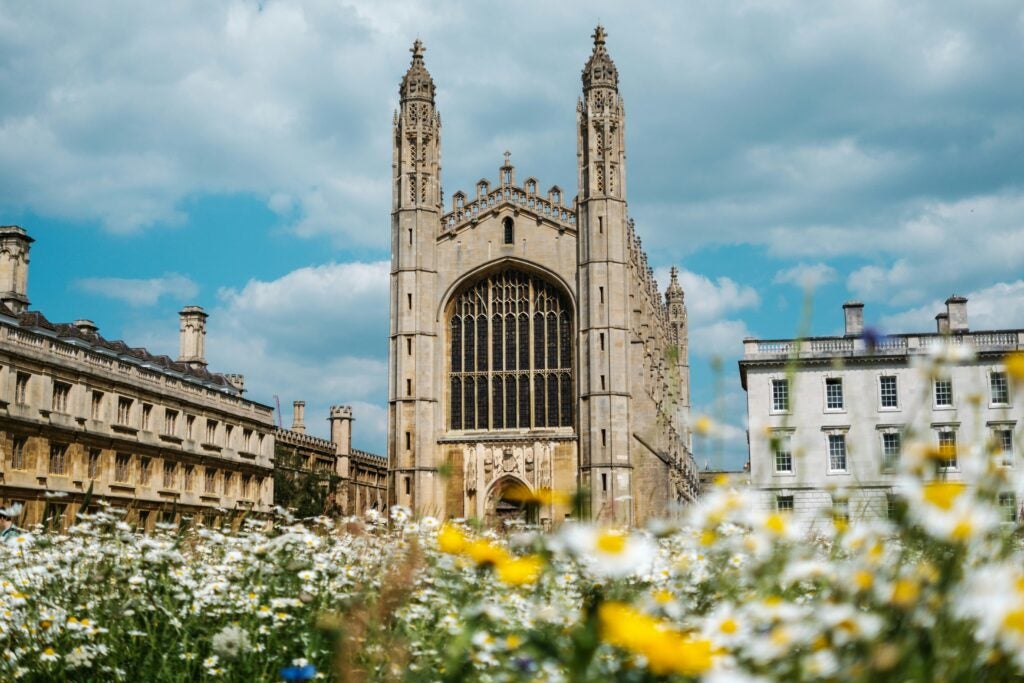Gates Cambridge Scholarship

King’s College, University of Cambridge
Background
The Gates Cambridge Scholarship program was established in October 2000 by a donation of US $210 million from the Bill and Melinda Gates Foundation to the University of Cambridge; this is the largest ever single donation to a UK university.
The aim of the Gates Cambridge program is to build a global network of future leaders committed to improving the lives of others.
What It Is
Each year Gates Cambridge offers c.80 full-cost scholarships to outstanding applicants from countries outside the UK to pursue a postgraduate degree in any subject available at the University of Cambridge.
Candidates must apply to their chosen postgraduate program at Cambridge through the University’s Graduate Applicant Portal. To be considered for a Gates Cambridge Scholarship, you must complete the section to apply for admission to a course and a College place and the Gates Cambridge part of the funding section. Gates Cambridge has access to the full application for admission and funding when reviewing applications.
After departments rank eligible applicants on academic ability, the Gates Cambridge passes the most academically outstanding on to shortlisting committees, which are divided into subject areas. These committees consider the applicants based upon the scholarship criteria. Shortlisted candidates are invited to interview.
Eligibility
- Citizen of any country outside the U.K.
- Applying to pursue one of the following courses at the University of Cambridge:
- PhD (full-time or part-time*)
- MLitt (full-time)
- One year postgraduate course (full-time), with some course exceptions
* Gates Cambridge is continuing to pilot a scheme which allows applicants to apply for funding for a part-time doctoral degree (PhD).
Criteria
- Academic excellence
- Candidates must show evidence of academic excellence through their transcripts, references, experience and the potential to succeed on the chosen course. Academic departments at the University of Cambridge nominate only the most academically outstanding applicants for a Gates Cambridge Scholarship, which ensures that those whom we select will thrive at Cambridge.
- Reasons for choice of course
- Gates Cambridge seeks Scholars who will have an academically transformative experience at Cambridge, so it is important that you fully research and justify the course for which you are applying.
- A commitment to improving the lives of others
- We interpret this criterion broadly and applicants define it themselves by providing evidence of their past, current and future commitment to the societies in which they will live and work.
- A capacity for leadership
- Applicants should provide evidence of their leadership experience to date and indicate the ways in which their leadership skills may have impact in the future careers.
Application Components
Applicants submit their application for admission and funding (Gates Cambridge and other funding) via the University’s Graduate Application Portal .
- Online application completed through the University’s Graduate Applicant Portal
- CV/resume
- Gates Cambridge selection questions
- Please describe how, through your education and past experiences, you have displayed academic excellence. (200 words)
- Please explain why you want to study this specific course at the University of Cambridge, and how it will facilitate your future plans. (200 words)
- Please provide an example, or examples, of how you have demonstrated a commitment to improving the lives of others. Please explain why this is important to you and how it is relevant to your future plans. (300 words)
- Please provide an example, or examples, of how you have demonstrated a capacity for leadership. This could be by initiating a change or bringing others together to achieve a goal. How will this help you make an impact in the future? (300 words)
- Three recommendation letters: in addition to two academic letters needed for admission to the graduate program, Gates Cambridge asks for a reference who will attest to your fit with the scholarship and criteria.
- Note: it is essential that the Gates Cambridge Referee is fully briefed about the Gates Cambridge Scholarship, especially its selection criteria, and is able to write authoritatively about your leadership potential and commitment to improving the lives of others. Specific examples are crucial.
Select Recipient Bios
Angela Bai, Gates Cambridge Scholar 2019
Program at Cambridge: MPhil in Architecture & Urban Studies
Angela graduated from Georgetown in 2017 with a major in biology and a deep affinity for design. Growing up in Zhengzhou and Los Angeles, both cities plagued by smog, she became keenly concerned about climate change and those who suffer its numerous consequences. As a student of biology at Georgetown University, she witnessed unprecedented melting of the Greenlandic Ice Sheet and studied thriving microbial communities in the extreme cold of Antarctica. At Cambridge, Angela is studying how people interact with bio-designed technologies, architecture, and landscapes in order to understand how designers, architects, and planners can create truly sustainable — and dignified — cities.
Ayan Mandal, Gates Cambridge Scholar 2018
Program at Cambridge: PhD in Psychiatry
At Georgetown, while pursing majors in Neurobiology and Physics, Ayan studied how different disease states could affect the connectivity of the nervous system. Most of his work centered on stroke, investigating how damage to neural structures, particularly white matter tracts, affected language abilities in patients. He also conducted in vitro electrophysiology research and characterized the functional connectivity of neuronal networks corresponding to APOE4, a high risk gene for Alzheimer’s Disease, in comparison to APOE3, the neutral allele. At Cambridge, he is applying his growing expertise in network neuroscience analysis to uncover brain networks corresponding to states of cognition in patients with brain tumors. Ultimately, he hopes to become a physician-scientist dedicated to translating key advances in research into the clinic.